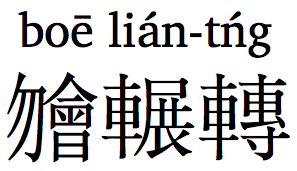Since father’s passed away we have been shedding things in the house. The guest room that never was is finally cleared up. We decided to give away the Mac Plus and will throw away the “made in Taiwan” Apple II and an early 1980s Vector CP/M computer shortly. They have been stored in some paper cartons for the past 10-15 years and have never been powered up again. I don’t even want to take pictures of them before they are out.
My parents, like many of their generation, used to frown at throwing away things. Father was particularly like that. Being a proud Hakka, he valued thrift much. And having served in the water processing and environmental engineering sector (he had overseen construction projects like water supply for chipmakers, incinerator for medical wastes, and so on), he always told us to “think of the impact to the environment” whenever we were going to throw away something. And he was an avid recycler–we’ve got a few appliances around that was rescued by him from the streetcorner. He repaired them and made them back to life.
In recent years, however, that has acutally become a problem. The house we have been living for almost a decade is certain bigger than the last one, which was too small for a house of five, but that doesn’t mean the capacity is unlimited. And again, like many of their generation, he sometimes stocked things out of impulse. When affluent baby-boomers now live in the age of hypermalls and cheap groceries (their prices being the cheapest in real terms in the entire human history), that impulse can bring funny consequences to a house. Many of my friends also shared the complaint that their parents buy too much, throw away too little, and their houses are full of clutters.
And we the Taiwanese, unlike our Japanese neighbors, are really, really bad at organizaing and utilizing space.
So for the past few months, since my family reached an agreement on what to keep (mostly photos and a limited number of personal belongings), we have been throwing away things. It was lot of work, and it is amazing that we are still throwing away things today.
For me, the past few months have been difficult. Emotionally we have to come to terms with the loss. But finding time to de-clutter the house, in addition to my already very hectic work schedule–it’s always hectic when you now have your own business, teaming up with partners, and playing multiple roles at the same time–is also such an ordeal. I have to devote a day or two every week. Lots of decisions and re-thinkings are involved in the process.
Still, we must do it and have to think what we really need in the next 2-3 years. There will be lot of things happening around. Like little brother is going to college in ’08, and I’ll certainly travel more. If we don’t de-clutter and don’t reconfigure the space, we’ll be literally stuck in a spatial impassé. Not that we lose our mobility literally, but that’s a very subtle psychological thing, and the fact that the space you live in reflects your mental state. Life must carry on with some reconfiguration.
My father’s recycling virtue has its sad side. His refurbished appliances have brought us some problems, and now we have lost a mechanical genius that could take care of them. I might be the one that have some of his skills in repairing things, but fixing software bugs already takes away most of my energy, and I don’t really want to spend yet another minute when I’m at home to rewire the speakers that stop working, or re-install Windows XP on those old PC boxes (horror!) that are noisy and in effect not really energy-efficient.
We have thought about selling them on auction sites. But taking photos of them is another time-consuming work. Many of them just don’t have brands. The “made in Taiwan” Apple II wasn’t of really much value. And giving them away to people? There are way too many things to give away, and it’s not easy to find the right people–or just finding people who are willing to take them is hard enough. We do have donated a used Acer desktop PC set to a middle school, which in turn gives it to a student who needs a PC at home.
In the end we have no choice but to throw many things away. Gladly we live near a household that does recylcing for Tzu Chi Foundation, one of the largest charity organizations in Taiwan. They categorize and arrange things and re-distribute them to people in need.
The one thing that my sister and I had been telling father is: we actually have more than enough in the house. The same can be said of many of my generation’s house. Overstocking things create clutter, and clutter ends up in waste. The sad thing is that not all waste have high residue market value, and clearing them out is another time-consuming, economically inefficient thing. So refurbishing or repackaging those stuff is just out of the question (they’re not economically rewarding at all–and I doubt the probability of changing hands successfully), throwing them away seems to be the only viable solution if we are to de-clutter.
So today I came to this “advice to parents” on my Twitter: if you really value the virtue of thrift, don’t be a pack rat.
lukhnos :: Aug.05.2007 ::
bon-vivant ::
Comments Off


